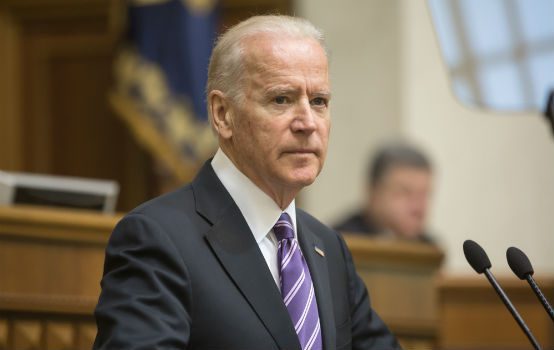The Nuclear Deal Disintegrates While Biden Dawdles

The Biden administration is about to make a serious mistake in its handling of the nuclear issue with Iran:
The U.S. is asking other countries to support a formal censure of Iran over its accelerating nuclear activities, a signal that the Biden administration wants to turn up the diplomatic heat on Tehran as it looks to restore a crumbling 2015 accord.
Biden and his team have squandered too much time already. Moving to censure Iran at the IAEA is the wrong move at the worst time. The Iranian government just went out of its way to show flexibility on continuing to allow international inspections. Just before the February 23 deadline when Iran was supposed to suspend its implementation of the Additional Protocol according to a new law passed by the Majlis (a law that has the support of 73% of Iranians), the Iranian government and the IAEA struck a bargain for the next three months that would permit more inspections than would have been possible otherwise.
Rouhani and his government bought the U.S. time to make good on Biden’s promises, and practically the first thing that Biden is going to do after that is complain to the IAEA about Iran’s supposed intransigence. Whatever the technical justification the administration might offer for this, it is politically and diplomatically tone-deaf. It signals to Iran that their patience and willingness to remain in the JCPOA are not going to be rewarded, and it suggests that the U.S. isn’t serious about honoring its commitments. Salvaging the nuclear deal was bound to be difficult, but the Biden administration has needlessly complicated its own task by taking one misstep after another.
The Iranian government sees little reason to trust Biden at this point. For all intents and purposes, Biden has continued Trump’s Iran policy with a few changes at the margins. Ali Reza Eshragi explains:
So far, Iran has been waiting for moves from the Biden administration that indicate it is serious about rejoining the JCPOA. The measures the US has taken in recent days – such as easing travel restrictions on Iranians diplomats in New York and rescinding the Trump administration’s failed attempt to snap back UN sanctions – are largely viewed in Tehran as symbolic rather than substantive.
Right now, Iran’s leadership has nothing to show for its patience and flexibility on this issue. Iranian public opinion has been squarely behind the government’s actions to reduce compliance with the JCPOA in protest against U.S. violations of the agreement, and the vast majority of Iranians is against making deeper concessions on the nuclear issue or any other issue. In a couple months it will be presidential election season in Iran, and the U.S. is extremely unpopular in Iran right now with an unfavorability rating of 84%. There is greater popular backing for critics of Rouhani and his policies than there is for someone that supports them (64-14%). Come this summer, the Iranian government will most likely be headed by a more hard-line, nationalist president, and the window for successful diplomacy will have narrowed significantly if it hasn’t closed entirely. Biden needs to act now while he still has a potentially cooperative counterpart in Tehran and majorities in both houses of Congress. If he waits until later in his term, he may find that Iran is no longer interested and his hands could be tied by partisan obstructionism in Congress.
Years of economic warfare and relentless hostility against Iran have done their work well: most Iranians don’t trust the U.S. to honor its commitments. 71% of Iranians now conclude that the JCPOA experience shows that it is not worthwhile to make concessions because Iran cannot trust other powers to honor their side of the agreement. Most Iranians support complying with the agreement in the event that the U.S. provides promised sanctions relief, but anyone who thinks that the Iranian government can make more extensive concessions on security issues is deluding himself. “Lengthening and strengthening” the agreement with Iran is not on the table, and the Biden administration would be wise to realize this and accept it.
The Iranian government has already stuck its neck out to preserve the agreement. It has been doing so for almost three years. It has faced a swift backlash in the wake of the deal made with the IAEA earlier this week, and its room for maneuver has been reduced more than ever. The U.S. cannot effectively manipulate Iranian internal politics, but it can take more or less constructive actions over the next few weeks. If Biden wants to be known for salvaging the JCPOA, he should be extending olive branches and goodwill gestures rather than censures and additional demands. There is still time to avoid a diplomatic breakdown, but the Biden administration needs to take the initiative and take a few risks to give Iran the incentive to respond in kind.
Comments